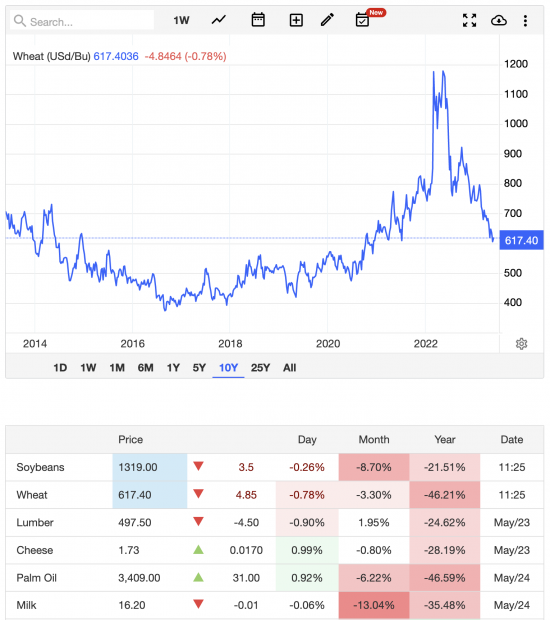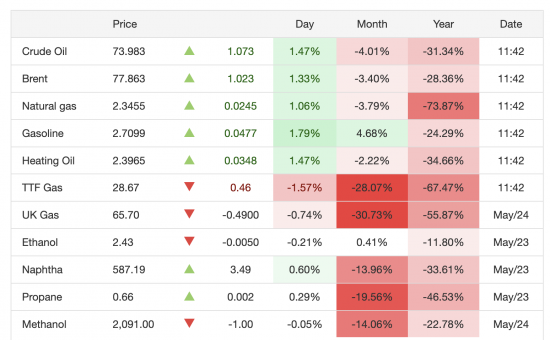I had a quick check of some key food prices on international markets as a result of comments left on another piece I wrote this morning with regard to inflation.
This data comes from Trading Economics:

The chart is of US wheat prices. I stress that I do know that we use little US wheat, but wheat is traded globally, as are many of the commodities noted in the table at the bottom.
There is one absolutely consistent feature to be noted within that table. It is that some absolutely basic food prices are down heavily on international markets over the last year. The average fall in prices exceeds 20 per cent.
Despite this, what we have learned today is that food prices in the UK are up 19 per cent in a year, with bread, olive oil and milk being central to this, even though all of them have seen their bulk wholesale prices fall dramatically.

I am, of course, aware that food manufacturers buy forward. In other words, many of the raw materials that they are using at present were bought at higher prices set sometime in the last year. However, just as world oil and gas prices have now fallen significantly, so have food prices, and it is therefore entirely reasonable to expect three things.
The first is that the Bank of England takes this fact into account when appraising inflation expectations. If food prices are supposedly now driving inflation, then it is entirely reasonable to expect that inflation will fall significantly and soon precisely because of the decline in bulk food prices. Why is that possibility not being discussed?
Second, why aren’t major retailers discussing this, and the implication that it will have on their own price structures over coming months?
Third, why is the emphasis only on those commodities where I accept that global prices have gone up, including sugar? Is there some sort of conspiracy to only discuss the bad news?
I think we need answers to those questions.
And before you say it, the answer is not down to energy costs. This table shows the movement in these over the last year:







